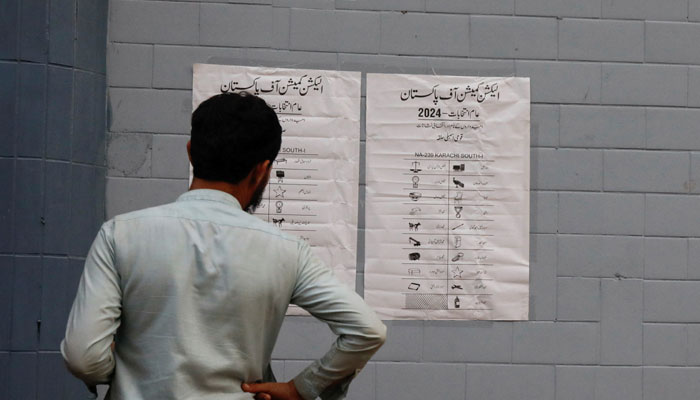The net must go on
Shutdowns also make it extremely difficult for journalists to effectively report
February 08, 2024

Pakistan votes today. In a record year for elections, Pakistan joins the nearly four billion people across the world who will vote for their representatives.
When the last general elections were held in Pakistan in 2018, there were at least 11 documented internet shutdowns. This election cycle has been no different.
We have already seen multiple shutdowns around activities by opposition parties. Authorities shut down the Internet, specifically targeting mobile and online platforms amidst protests following the arrest of opposition leader and former prime minister Imran Khan in May 2023. It is reported that 125 million people were affected by the government’s decision to suspend Internet access.
Access to online platforms was blocked in December 2023, as well as on two separate occasions in January 2024. This interfered with the opposition’s election campaigning online. Given this background, the Pakistan Telecommunication Authority (PTA)’s justifications, attributing a recent blackout to ongoing system upgrades which will continue for the next “two to three months”, raise alarm.
Internet shutdowns interfere with people’s livelihoods and have tremendous adverse impacts on countries’ economies. Shutdowns can cost nations billions of dollars, with businesses, public organizations, and private institutions that rely on the internet losing huge sums of money.
Online financial transactions, service delivery reliant on the internet, global capability centres, manufacturing, trade – there is no sector or industry that is left unhurt in the event of a shutdown. This is evident from the data available from 1LINK and Habib Bank Limited, which shows that transactions processed through Pakistan’s primary digital payment systems experienced a decline of approximately 50 per cent during the internet shutdown following Imran Khan’s arrest. The shutdowns in the country also have to be contextualized as our cash-strapped country awaits a $1 billion bailout from the International Monetary Fund.
Disabling internet access during conflicts, demonstrations, or health crises restricts the availability of crucial, timely, and potentially life-saving information, while also hindering access to emergency services.
This disruption of information flow can worsen existing tensions, potentially instigating or concealing violence and violations of human rights by both state and non-state actors. It also obstructs the efforts of human rights advocates and facilitates the dissemination of misinformation. We see these tactics being used not just in Pakistan but all around the world – including in the ongoing violence in the Middle East.
Shutdowns also make it extremely difficult for journalists to effectively report, hindering their ability to report effectively and denying both local and international audiences access to verified and reliable information. Additionally, such shutdowns would impede key stakeholders, including the Election Commission of Pakistan, national and international election observers, political candidates, and civil society members, from closely monitoring the electoral proceedings.
Elections can be an exciting, anxious time in any country. Whether or not people follow the elections, everyone deserves access to all the information they need about their potential leaders. With a large shift in discourse to online spaces, the Internet is crucial in bolstering participatory governance, promoting inclusivity and transparency, and upholding fundamental human rights within a democratic framework.
Free exchange on the internet fosters public dialogue, gives voters meaningful access to information about electoral processes, and empowers people to demand governmental accountability. An open, free internet also facilitates efficient reporting, monitoring, and coverage of elections by journalists, human rights advocates, and election observers.
Internet shutdowns harm societies and economies, and reduce the reliability of the global internet infrastructure. Internet shutdowns are an extension of traditional forms of censorship, like during elections. However, internet access – or the lack of it – does not address the political and institutional issues in a country. In fact, an internet shutdown during an election can deepen distrust in the democratic process.
Civil society across Pakistan urges government authorities to keep the internet on and strong. The internet must not be shut down during elections. People across a country need to meaningfully exchange ideas, information, engage in debate, and choose their leaders – and the open, globally connected internet facilitates all of this.
If anyone wants to learn more about internet shutdown events occurring around the world and the economic and human impact of these actions, please feel free to visit the Internet Society Pulse website online.
The writer is a lawyer and director of Digital Rights Foundation. She tweets/posts @NighatDad
Disclaimer: The viewpoints expressed in this piece are the writer's own and don't necessarily reflect Geo.tv's editorial policy.
Originally published in The News











